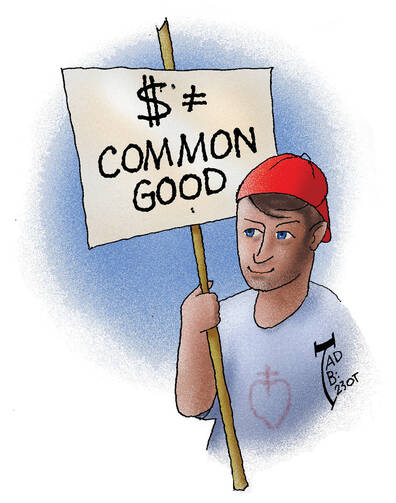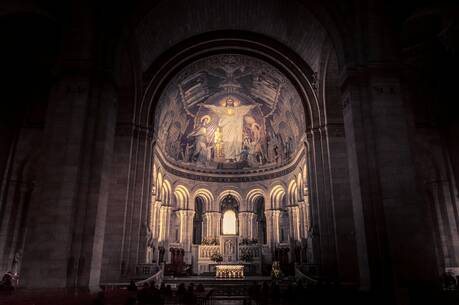Be Strong; Do Not Fear
How can people be upset about a lion being killed, even if it was lured out of a protected area and slaughtered? A lion? There are babies being killed throughout the country, the world even, and people are upset about animals? Why is Planned Parenthood not at the top of the news? But what about human lives after conception, do these lives matter at all? Do #BlackLivesMatter? Do the lives of migrants drowning in the Mediterranean matter to anyone?
But to protest about one sort of injustice does not mean that people consider other injustices irrelevant. Expressing moral outrage over animals and their environment need not be at odds with defending the lives of innocent babies in the womb whose lives are brutally ended or with neighbors whose lives are at risk daily from racism, manifested in numerous ways, but most clearly in white supremacist rhetoric that leads even to the mass murder of black Christians praying in the quiet of a church. One can act on behalf of migrants making their way to Europe on the flimsiest of vessels and still speak out about the incarceration rate in U.S. prisons.
While each of us has limited time and energy and will have to choose to which of these various injustices we will lend our voice and effort toward healing, we are not engaged in some sort of zero-sum game of indignation, in which one cause must rule them all. As Pope Francis has written of St. Francis of Assisi in “Laudato Si’,” “He shows us just how inseparable the bond is between concern for nature, justice for the poor, commitment to society, and interior peace” (No. 10). They are not odd pieces of a puzzle that will not fit together but integral pieces that are all necessary for the puzzle to come together.
But what of another piece of the puzzle, the interior peace of which Pope Francis speaks? How does outrage lend itself to interior peace? This is where it is important to see outrage as a manifestation of that inchoate desire for justice, implanted in us so deeply by God, which itself needs purpose and goal. Our outrage reflects our desire for justice, but the desire for justice needs hope to flourish. It needs the promise: “Be strong, do not fear! Here is your God. He will come with vengeance, with terrible recompense. He will come and save you.”
We must cry out for the oppressed, weep for the loss of innocent life and act, but we must never forget to pray in hope. God has not forgotten and God will not forget. Our hope for justice is an inkling of God’s will, “who executes justice for the oppressed; who gives food to the hungry. The Lord sets the prisoners free; the Lord opens the eyes of the blind. The Lord lifts up those who are bowed down; the Lord loves the righteous. The Lord watches over the strangers; he upholds the orphan and the widow, but the way of the wicked he brings to ruin.” God has not suddenly turned his back on the prisoners, the weak and the oppressed or forgotten the ways of wickedness. God calls us to be strong, to not fear and to act with hope.
As we act, we know that God is with us. Action begins at home, says James, by not making distinctions among the poor and the rich at church, treating the “poor person in shabby clothes” with disdain and “the one wearing the fine clothes” with honor. Think of Jesus’ ministry, how ordinary and mundane it was in many ways, reaching out to individuals as he walked a particular and small patch of this earth. Jesus responded to human need and suffering around him by healing a deaf man, feeding the hungry—each person of value in God’s plan to redeem humanity. That plan of redemption has not come to an end, and we can act in concert with it, for “the God who created the universe out of nothing can also intervene in this world and overcome every form of evil. Injustice is not invincible” (“Laudato Si’,” No. 74). Indeed, God’s word is clear: true justice is our hope and destiny.
This article also appeared in print, under the headline “Be Strong; Do Not Fear,” in the August 31-September 7, 2015, issue.








